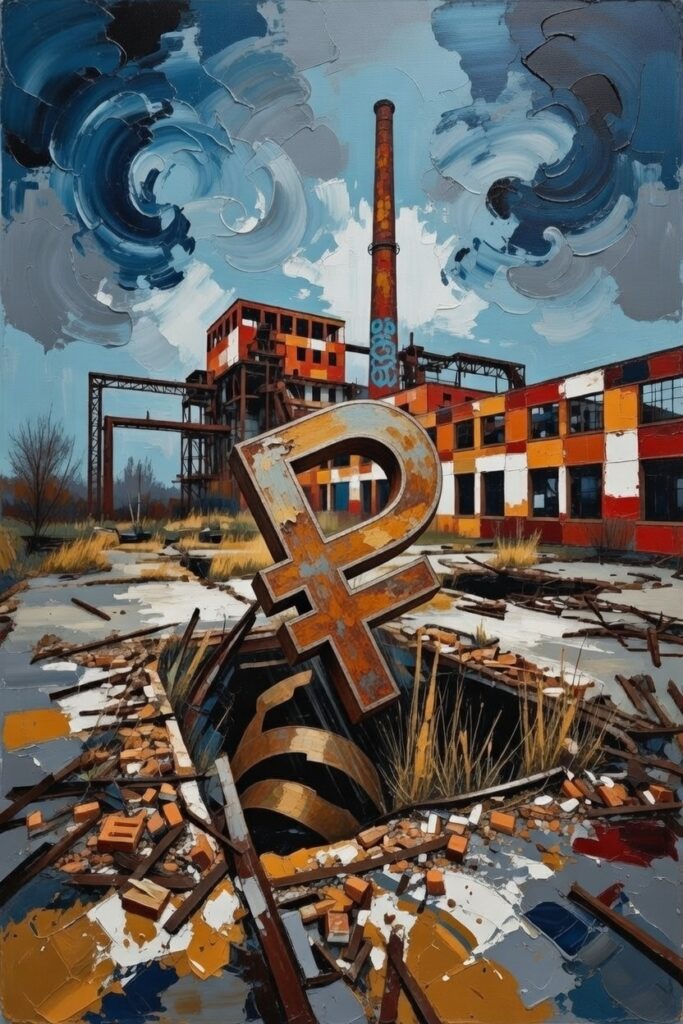The latest US-EU «trade deal that isn’t really a deal» delivers a blow to Moscow: an agreement to replace Russian oil, gas, and nuclear power imports with US supplies. While not finalized and partly aimed at placating Trump, the deal maintains tariff rates at 15% for most goods. It highlights a core issue for Moscow’s policymakers as the civilian economy falters: in a transactional world, what can Russia offer? Given the economic headwinds, the answer is increasingly unclear.
The Bank of Russia’s recent rate cut from 20% to 18% carries significant implications. While 18% remains painfully high, fueling a rising tide of consumer debt defaults, the modest 2% cut surprised markets. If the Bank had greater flexibility, it wouldn’t have opted for such a cautious move. Inflation risks clearly still trouble Nabiullina. Should rates drop to the mid or low teens and borrowing surges, it would signal inflation is higher than officials admit. Even significant labor market slack may not ease the numerous bottlenecks—food price inflation (unaided by harvests), specialist losses to the war effort, and more—driving up costs for ordinary Russians.
Central bank surveys reveal a growing number of businesses planning layoffs, rising from 6.9% in January to 11.5% by June. Signs of a worsening job market, coupled with persistent inflation, offer little relief. The EU’s 18th sanctions package lowered the price cap on Urals blend crude exports from $ 60 to $ 47.50. Though systematically circumvented, this cap, combined with global oil oversupply, threatens trillions of rubles in budget revenue as buyers demand steeper discounts. Oversupply is set to intensify through year-end, easing pressure on product markets as demand dips in Q4 relative to Q3. This, alongside an emerging job market slowdown, will likely force spending cuts to capital investment and social programs, exacerbating pain for the unemployed.
Increased EU and US pressure on Russia’s shadow fleet is driving up domestic diesel prices. With a larger share of exports impacted, refiners and wholesalers offset losses by raising prices for domestic consumers. The damping mechanism—a negative excise tax that adjusts based on price levels—remains a clunky, inefficient tool to curb inflation. Higher diesel prices will push goods prices upward. Meanwhile, hot-rolled steel prices are rising with the ruble’s strengthening, even as iron ore and coking coal prices fall. Anemic domestic demand prevents the industry from capitalizing on these shifts. These distortions stem from and feed into the wartime economy. Inflation relief won’t feel «real» until the consumer recession peaks, likely requiring mass unemployment that will spark new social pressures on military recruitment.
Official statistics show munitions production as the sole bulwark against a broad decline in industrial output. The labor market paints a bleaker picture. Opora Rossii surveys indicate falling demand for labor hours, projected to hit 7 hours and 20−25 minutes per employee per workday. Consumer-facing businesses are cutting hours and shifting workers to part-time roles, increasing household income precarity. Opora’s data suggests up to 40% of the workforce could face this by year-end. While most companies still plan raises, the median increase is around 5%, lagging far behind inflation for key household consumption items.
Russia’s resilience to the 2022 sanctions shock stemmed from social and political pressures that led businesses to cut hours or withhold pay rather than lay off workers. In high, persistent inflation, this becomes a liability, slowing market adaptation to downturns. This isn’t inherently negative—stronger state unemployment benefits help—but it underscores how the economy’s «resilience» hampers efficient adaptation. According to the Bank of Russia, banks’ lending portfolios have stagnated over the past six months amid the credit crunch under high rates. Yet prices and wages keep rising. Businesses will eventually struggle to maintain this facade, and the effectiveness of informal interventions will be tested as side effects cascade.
Authorities are getting creative. For example, they’ve introduced an 18-month credit holiday for families with a second or subsequent child, though the debt and interest remain unchanged, merely deferred. More is needed, especially as the Federation Council discusses redirecting 2 trillion rubles from social programs to defense and security. Loan subsidies propping up the defense sector are indirectly fueling inflation or directly draining demand, investment, and resources from the broader economy.
In a transactional world, what does Russia offer? With a weakening domestic market for imports and key exports—oil and gas—facing oversupply and pressure from transport electrification, options are limited. Security guarantees? Perhaps, but financial sanctions force the regime to reallocate resources, likely at the expense of other sectors. The imperial project driving the regime’s inner circle since 2007 has been a deadweight on national welfare. If hundreds of thousands lose jobs in the next 6−12 months, no narrative of a «necessary» economic correction will easily justify diverting wealth and lives from households to the war effort.










